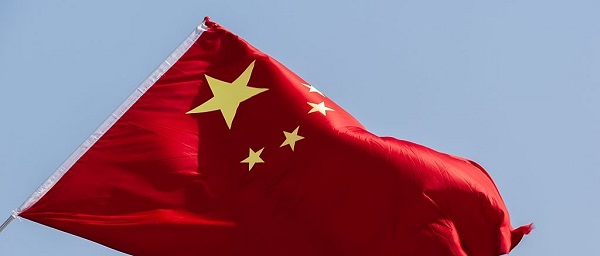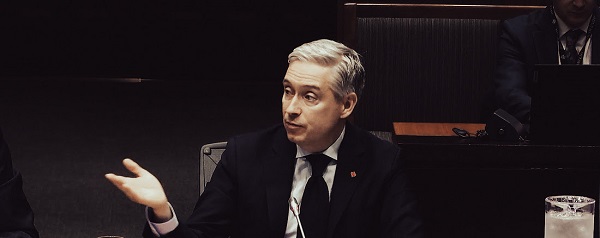International
Trump’s ‘Golden Dome’ defense shield must be built now, Lt. Gen. warns

 MxM News
MxM News
Quick Hit:
Lt. Gen. Trey Obering (Ret.), former director of the Missile Defense Agency, is calling on Congress and the Department of Defense to move quickly in support of President Donald Trump’s vision for a next-generation missile defense system—dubbed the “Golden Dome.” In a Fox News op-ed, Obering argues that a constellation of up to 2,000 satellite interceptors could defend against modern threats from China, Russia, North Korea, and Iran at a fraction of the cost of today’s ground-based systems.
Key Details:
-
The Golden Dome initiative will be presented to President Trump following his executive order mandating the development of advanced national missile defense.
-
Obering says a space-based system, enabled by AI and peer-to-peer networking, could intercept missiles earlier in their trajectory, significantly enhancing U.S. deterrence capabilities.
-
Estimated cost for the full satellite constellation would be less than the price of today’s 44 ground interceptors and global radar network.
Diving Deeper:
In a March 31 op-ed for Fox News, retired Lt. Gen. Trey Obering, who directed the Missile Defense Agency under President George W. Bush, laid out a detailed argument for why President Donald Trump’s “Golden Dome” missile defense shield is both technologically feasible and strategically necessary. “We can do this — and we must,” Obering wrote, emphasizing the urgency of the moment.
According to Obering, the current U.S. missile defense architecture—reliant on ground-based interceptors and radar systems—faces serious limitations in light of the increasingly sophisticated missile technologies being developed by U.S. adversaries. “Our existing missile-defense system cannot easily defeat some of our adversaries’ more modern, sophisticated weapons,” he noted.
The “Golden Dome” proposal envisions a network of up to 2,000 satellites in low Earth orbit, operating as both sensors and interceptors. The concept, which builds on Ronald Reagan’s Strategic Defense Initiative and the shelved “Brilliant Pebbles” program, is now achievable thanks to advances in artificial intelligence, satellite production, and space-based communications. “Each satellite has the knowledge of every other satellite,” Obering explained. “They all serve as both threat sensors and hit-to-kill interceptors.”
Obering pointed to real-world applications of this model in Ukraine, where a peer-to-peer software system—built using concepts from Uber—has helped the Ukrainian military effectively target Russian positions. A similar concept could be applied to satellite-based missile defense. “The networking concept has already proven its effectiveness on the battlefield in Ukraine,” he said.
Importantly, Obering stressed that while no missile shield is perfect, the deterrent power of such a system would be undeniable. “The capability and capacity now exists to defeat single and multiple missile launches, thereby creating strategic deterrence — or ‘peace through strength,’ in the words of both Reagan and Trump,” he wrote.
Cost is another key factor. Obering argued that this next-gen system would come in at a lower price than the 44 ground interceptors currently deployed in Alaska and California. He cited SpaceX’s Starlink, which already has over 7,000 satellites in orbit, as proof of concept for rapid and scalable deployment. “For a defense system charged with safeguarding countless lives and trillions of dollars in assets, this would be money well spent,” he said.
He also warned that bureaucratic delays must not slow the project. “We cannot allow unnecessary bureaucratic hurdles to stifle our progress,” Obering urged. He called on Congress to expedite confirmations of key defense leaders and fully fund the Golden Dome initiative, with the Missile Defense Agency as the lead coordinating body.
With China racing ahead in artificial intelligence and space defense, Obering concluded with a stark warning: “Golden Dome must be built first; the alternative is too terrible to contemplate.”
International
Trump gets an honourable mention: Nobel winner dedicates peace prize to Trump

Quick Hit:
Venezuelan opposition leader Maria Corina Machado dedicated her Nobel Peace Prize on Friday to President Donald Trump, praising his “decisive support” for Venezuela’s fight against dictatorship.
Key Details:
- The Norwegian Nobel Committee honored Machado for “promoting democratic rights for the people of Venezuela” and her peaceful efforts to restore democracy after years of socialist rule under Nicolás Maduro.
- In her acceptance message on X, Machado said she dedicated the prize “to the suffering people of Venezuela and to President Trump,” calling the recognition a “boost” to finish the nation’s “task to conquer freedom.”
- The announcement follows Trump’s successful mediation of a peace agreement between Hamas and Israel, ending a two-year conflict and prompting new calls for Trump himself to be recognized with the prize.
This recognition of the struggle of all Venezuelans is a boost to conclude our task: to conquer Freedom.
We are on the threshold of victory and today, more than ever, we count on President Trump, the people of the United States, the peoples of Latin America, and the democratic…
— María Corina Machado (@MariaCorinaYA) October 10, 2025
Diving Deeper:
Venezuelan opposition leader Maria Corina Machado was awarded the Nobel Peace Prize on Friday for her decades-long effort to restore democracy to Venezuela. The Norwegian Nobel Committee commended her for “bringing her country’s opposition together,” “resisting the militarization of Venezuelan society,” and maintaining her “steadfast support for a peaceful transition to democracy.”
Shortly after the announcement, Machado posted a message dedicating the award “to the suffering people of Venezuela and to President Trump for his decisive support of our cause.” She continued, “We are on the threshold of victory, and today, more than ever, we count on President Trump, the people of the United States, the peoples of Latin America, and the democratic nations of the world as our principal allies to achieve freedom and democracy.”
The recognition came just days after a Trump-negotiated peace agreement between Hamas and Israel was signed, potentially ending two years of war in the region. The timing has fueled renewed discussion of Trump’s growing international legacy — particularly as Machado becomes one of many global leaders to credit him for advancing peace abroad.
Trump has long expressed interest in receiving a Nobel Peace Prize, citing his administration’s historic peace deals and conflict resolutions during both his first and current terms. In January, Trump voiced strong support for Machado and Venezuela’s pro-democracy movement, praising her for “peacefully expressing the voices and the will of the Venezuelan people.”
Machado has faced years of political persecution by Venezuela’s socialist regime. Her candidacy in last year’s presidential election was blocked by Maduro’s government over alleged financial irregularities, forcing her to endorse another opposition candidate. Though the opposition claimed victory, Maduro refused to relinquish power.
In awarding her the Nobel Peace Prize, the committee noted that Machado “meets all three criteria stated in Alfred Nobel’s will” — disarmament, the brotherhood of nations, and the promotion of peace. Her acknowledgment of Trump, however, underscored the American president’s continued influence in global democratic movements.
Machado concluded her statement with a call to perseverance: “This recognition of the struggle of all Venezuelans is a boost to conclude our task — to conquer freedom.”
Business
Trump Warns Beijing Of ‘Countermeasures’ As China Tightens Grip On Critical Resources


From the Daily Caller News Foundation
Despite their strategic significance, the U.S. imports 80% of the rare earths it consumes, primarily from China, which dominates global production and controls roughly 92% of the world’s refining capacity.
President Donald Trump on Friday threatened China with a massive tariff hike and hinted his upcoming summit with Chinese President Xi Jinping could be canceled as a result of Beijing’s latest escalation in trade hostilities.
China ramped up its economic pressure campaign this week, first by imposing new export controls Thursday on rare earth minerals critical to the production of vehicles, weapons systems, and other advanced technologies. On Friday, Beijing escalated further, announcing new port fees on American ships and launching an antitrust investigation into U.S. tech giant Qualcomm.
In response to what he described as “great trade hostility,” Trump said there was “no reason” to meet with Xi in South Korea later this month.
Dear Readers:
As a nonprofit, we are dependent on the generosity of our readers.
Please consider making a small donation of any amount here.
Thank you!
“Dependent on what China says about the hostile ‘order’ that they have just put out, I will be forced, as President of the United States of America, to financially counter their move. For every Element that they have been able to monopolize, we have two,” the president posted on Truth Social.
Trump announced later on Friday that the U.S. would impose a 100% tariff on China starting Nov. 1, in addition to existing levies, and implement export controls on “any and all critical software.” He added that the tariffs could go into effect sooner, “depending on any further actions or changes taken by China.”
Despite their strategic significance, the U.S. imports 80% of the rare earths it consumes, primarily from China, which dominates global production and controls roughly 92% of the world’s refining capacity.
Under the new rules, foreign suppliers must obtain Beijing’s approval to export any product made with Chinese rare-earth processing technology or containing rare-earth materials that comprise as little as 0.1% of the item’s value. The restrictions also extend to the export of technology used in rare-earth mining, smelting, and magnet manufacturing, and add five more rare-earth elements to China’s existing control list.
Trump warned that Beijing’s move could “clog” global markets and “make life difficult for virtually every country in the world.”
“I have always felt that they’ve been lying in wait, and now, as usual, I have been proven right! There is no way that China should be allowed to hold the World “captive,” but that seems to have been their plan for quite some time,” the president wrote.
“But the U.S. has Monopoly positions also, much stronger and more far reaching than China’s. I have just not chosen to use them, there was never a reason for me to do so — UNTIL NOW!” Trump said.
The Chinese Transport Ministry also said it will begin collecting port fees on vessels owned by U.S. companies or individuals — and even those built in America — starting Oct. 14. The rollout overlaps with Washington’s plan to impose new charges on large Chinese vessels docking at U.S. ports the same day.
The president also noted that Beijing’s timing was “especially inappropriate,” noting that it coincides with the peace deal he helped broker between Israel and Hamas to bring the two-year conflict to an end.
-

 Alberta1 day ago
Alberta1 day agoFact, fiction, and the pipeline that’s paying Canada’s rent
-

 Energy2 days ago
Energy2 days agoIn the halls of Parliament, Ellis Ross may be the most high-profile advocate of Indigenous-led development in Canada.
-

 Energy2 days ago
Energy2 days ago“It is intellectually dishonest not to acknowledge the … erosion of trust among global customers in Canada’s ability to deliver another oil pipeline.”
-

 Aristotle Foundation2 days ago
Aristotle Foundation2 days agoEfforts to halt Harry Potter event expose the absurdity of trans activism
-

 International21 hours ago
International21 hours agoTrump gets an honourable mention: Nobel winner dedicates peace prize to Trump
-

 Business13 hours ago
Business13 hours agoCarney government plans to muddy the fiscal waters in upcoming budget
-

 Business21 hours ago
Business21 hours agoTrump Warns Beijing Of ‘Countermeasures’ As China Tightens Grip On Critical Resources
-

 Bruce Dowbiggin2 days ago
Bruce Dowbiggin2 days agoCanada’s Humility Gene: Connor Skates But Truckers Get Buried



